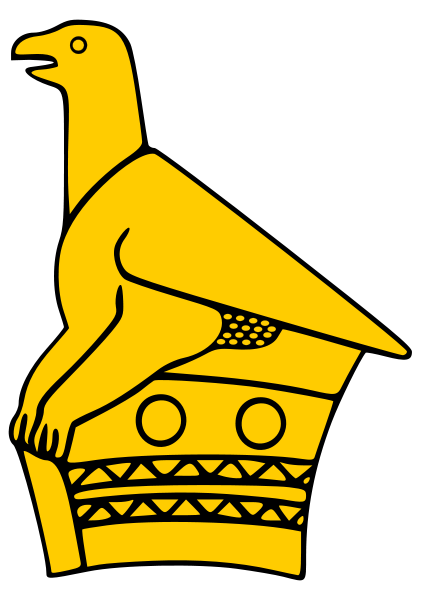Pioneer Days
Would the Matabele withdraw?
The final result of all this fighting at the end of April was a stalemate. The Matabele had - in the long run - lost their chance of decisively defeating the whites (Imperial troops were on their way) and the whites lacked sufficient means to press home their victory, fearing for the safety of the laager if they went on an extended sweep. The Matabele reoccupied the field after the whites withdrew. The outskirts of Bulawayo were far from safe, shown by the murder of several "coolies" (laborers) working in their vegetable gardens on April 28. As a military force, the Matabele were hardly spent, shown by their attack on Fort Dawson to the south-west of Bulawayo although some accounts report this as a rather desultory affair (see Cobbing 1976: 405). The Ndebele still dominated the Upper Umgusa as Spreckley wrote: "The [Matabele] were reported as having left this part of [Bulawayo] - but they came up in numbers of 200 or 300 this morning at 12 o'clock - but cleared away as soon as we sent a small force out to attack them - they cleared into the thick bush - where it is almost impossible to work with anything but dismounted men - I have cursed pretty considerably about this business and shall be glad when the soldiers arrive… Tell the Doctor [Jameson] I say curse the Chartered Company and the Matabele as well" (Cobbing 1976: 406).
Help was on the way…
The Matabeleland Relief Force had been raised in Salisbury on April 6, and once supplies were secured, began their march south, commanded by Captain Beal. The authorities in Bulawayo sent forth a column of their own under the command of Napier to meet up with these troops once they approached the Gweru area. Napier's men clashed with the Matabele in the area of Thabas Induna and Beal's troops saw action near Insiza before the two met near the Pongo River. Reinforcements had arrived in Bulawayo under the command of Colonel Herbert Plumer of the York and Lancaster Regiment. This officer had been appointed by the High Commissioner to raise a force of Irregular Horse for service in Matabeleland numbering 850. This was divided into 14 troops, forming five squadrons, each with quick-firing machine-guns; while a further force of 250 blacks was organised to accompany Plumer's force. Bulawayo transformed. From being a town under siege, living on its nerves, it became a military base from which control would be reimposed on the rest of the country. The amateur soldiers of Bulawayo rubbed shoulders with seasoned campaigners and all joined forces with a determination to end the war, one way or another.
Why had the Matabele been able to fight so effectively?
"The Matabele is no fool; his preconceived notions of how to fight the white man have long since been discarded. He knows now that it is a bad thing for his health to face the fire of the 'isi-kwa-kwa' (Maxim) in the open, that advances in skirmishing order and volley firing are better tactics… he no longer believes that the higher he pushes the sight of his rifle, the harder will be the impact of the bullet; and he is at last live to the fact that it is more effective to shoot down the gunners, than to blaze away at the on-coming 'by-and-by' (shell)" (Sykes 1897: 174-175). The Matabele, it seems had fully learnt the lessons of 1893, while the whites, deceived by their own propaganda, showed the unforgivable blunders of over-confidence, rashness, unfamiliarity with the terrain and incoherent military objectives. The raids out of Bulawayo were a waste of lives and supplies while the Matabele were content to wait on the defensive, attempting to cut off the whites or keep them engaged until ammunition ran out and they could be overwhelmed.
So why were the Matabele on the back foot after April 1896?
Later historical accounts have dismissed or downplayed Matabele military achievements in the period March to May 1896, often because historians viewed the events in the context of the white's victory. The Matabele have been presented variously as superstitious, backward in their appreciation of modern military tactics, riven by dissent and merely murderous thugs hellbent on destroying “civilization”. That all these perspectives are incorrect is something we hope to have shown in this and other briefings. Nevertheless, the Matabele operated under severe constraints when compared to their white counterparts, which makes their early victories even more impressive. Communications allowing effective coordination and deployment of soldiers were inadequate and many opportunities were consequently lost. They lacked suitable siege equipment, other than cutting supplies and food sources; such tactics became impracticable when the whites began running heavily armed escorts with their convoys. Additionally by leaving the road to Mangwe open, they allowed the whites to resupply and reinforce themselves. The Matabele were thus left with the option of either forcing the whites to a peaceful resolution or take the war to a new theatre.
Sourced from the Zanj Financial Network 'Zfn', Harare, Zimbabwe, email briefing dated 28 March 2011


 South Devon Sound Radio
South Devon Sound Radio Museum of hp Calculators
Museum of hp Calculators Apollo Flight Journal
Apollo Flight Journal Apollo Lunar Surface Journal
Apollo Lunar Surface Journal Cloudy Nights Classic Telescopes
Cloudy Nights Classic Telescopes The Savanna - Saffer Shops in London
The Savanna - Saffer Shops in London Linux Mint
Linux Mint Movement for Democratic Change
Movement for Democratic Change